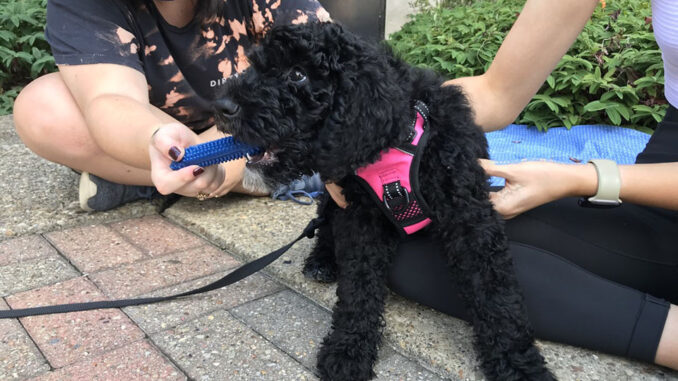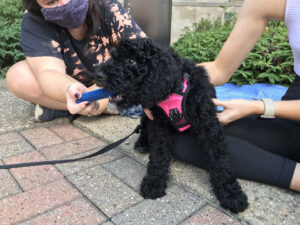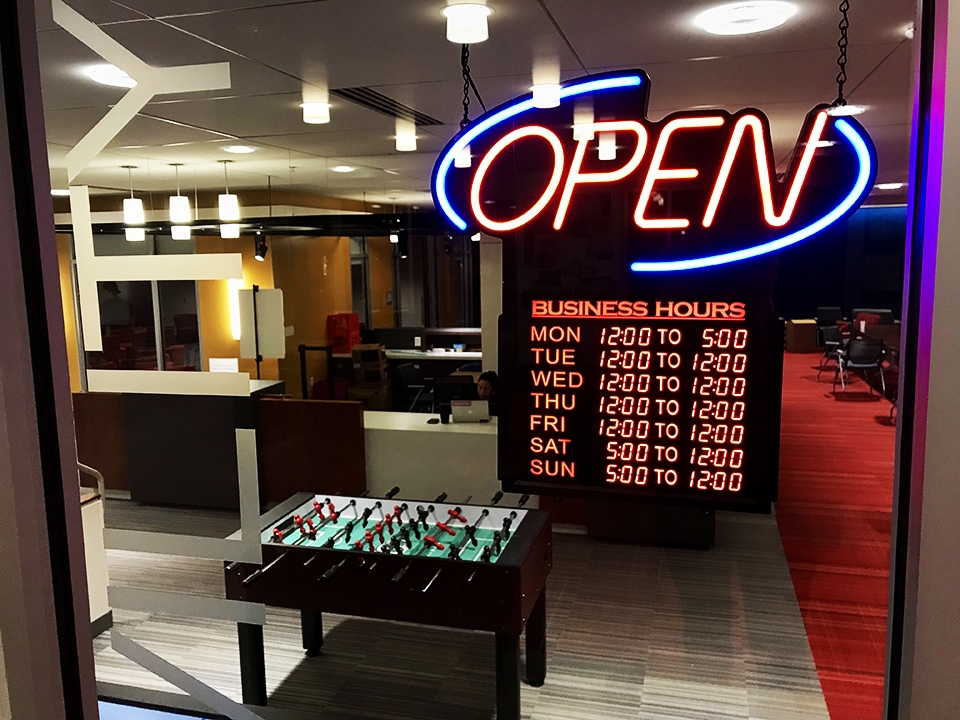

Ashley Newman | Staff Writer
09/03/2020
Encountering a dog on campus can brighten anyone’s day. Some of the furry friends you might see going for walks down A-Walk could be service animals, like Charlotte.
Charlotte is a 2-month-old standard poodle. Her owners, Claire Toomey and Justin Feild, have had her for about one week.
“I have always wanted a dog because of what a great relationship you and your dog can develop,” Toomey said. “I love the personalities they can have and how each dog is their own person, even though they are four-legged and not two.”
Charlotte, named after a character in Werther, a Massenet opera, is an emotional support animal.
According to the American Kennel Club, emotional support animals “legally must be prescribed by a licensed mental health professional like a therapist, psychologist or psychiatrist.”
Toomey said that it took two weeks to get Charlotte certified to be an emotional support animal. Since emotional support animals are not meant to help people with disabilities, they are not trained specifically like other service animals. It is up to the owners to decide how they want to train their animal.
Toomey got Charlotte to help with her social anxiety. She said that she has never had an emotional support animal before.
“She is truly just the light of my life and taking care of her means everything to me,” Toomey said.
Charlotte now lives with Toomey and her housemates in the Allentown area of Pittsburgh.
“Emotional support animals (ESAs) refer to dogs and other pets that provide emotional support and comfort to their owners on a daily basis,” according to the American Kennel Club.
A typical day for Charlotte includes going on a short walk in the morning and playing with Toomey before she goes to work. On her walks to a corner near their house, Charlotte likes to watch police cars leaving the station parking lot.
Charlotte is mainly distracted on her walks by leaves, according to Toomey.
After her walks, Charlotte likes to sit with Toomey’s other housemates, including her “Aunt Carissa” or “Aunt Isabel,” according to Toomey. She rests during the day and plays or watches TV when everyone is home at night.
Her favorite place in the house is either in the kitchen or “truly wherever anyone is. She’s a big people dog,” according to Toomey.
Overnight, Charlotte sleeps in her crate next to Toomey’s bed.
“She is crate-trained … she is so well behaved. She is already potty trained and can sit on command,” Toomey said.

According to Toomey, Charlotte’s favorite toys include “washcloths, rawhides, her cow stuffed animal and her cloud stuffed animal.” Her favorite snacks are Honey Nut Cheerios and ice cubes.
“She loves people and playing around more than anything. She also adores listening to her housemates sing and play the piano,” Toomey said.
Charlotte’s favorite music is classical, but she’s particularly fond of her Aunt Carissa’s singing.
Overall, Charlotte is very curious, according to Toomey. She barks at other dogs to say hi, or when she is startled.
“Her personality is sweet, spunky and inquisitive,” Toomey said.
If you would like to see Charlotte around campus, her favorite spot is outside of the first-floor landing at the Mary Pappert School of Music. Important reminder: Make sure that it is okay with whoever Charlotte is with before trying to pet or interact with her, or any other pets you may see around campus.




